Meet Sol Organics , an innovative company disrupting the luxury sheet market with fair trade, GOTS certified, organic luxury sheets and bedding – at half the price of standard luxury sheets and a mission to help the planet.
Sol Organics is cutting out the middle man and going direct to the consumer all while keeping a 100% sustainable product. Sol Organics is able to offer sheets that traditional brands charge $300+ – for $99.
Consumers don’t just get a fantastic product, but one that is 100% organic, fair trade, while making the lowest possible impact on the planet.
Coupled with a built in donation at checkout, every sheet you buy Sol Organic donates money to one of their partnership organizations that you choose – at no cost to you.
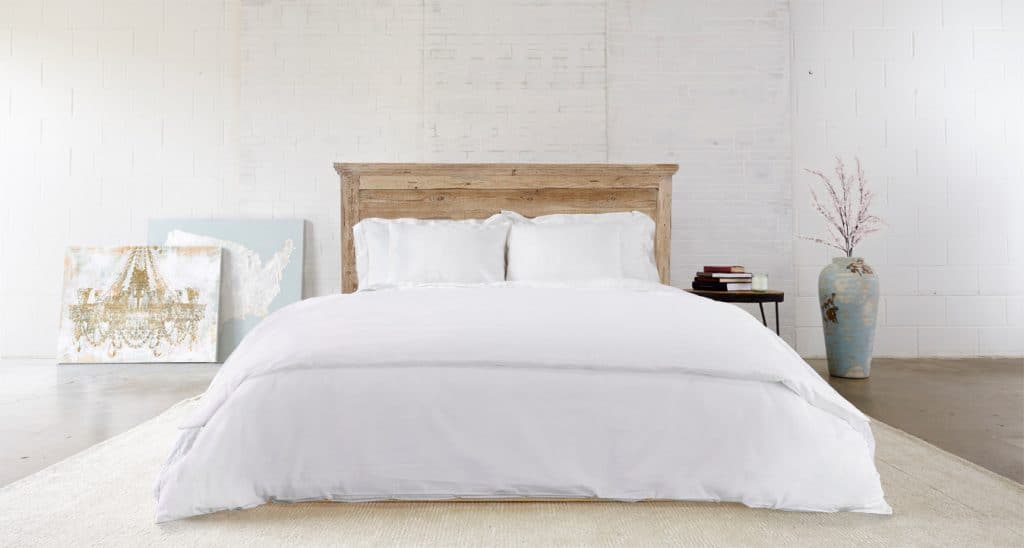
The partners that Sol Organics use to create these organic sheets share similar values. Treat workers with dignity and respect. Prevent child labor, forced labor, gender & age discrimination.
Provide fair wages, fair trade, fair price. Farms without pesticides, rivers without toxins. Create critical mass for positive social & environmental change.
Below is a Q&A with Vishal Naithani, founder of Sol Organics.
Q: Being in Minnesota, how did you enter the luxury sheet industry? What was it about the market that you wanted to disrupt it in a social impact way?
In 2012, I was sharing a cup of tea with a family friend of ours, Ms. Shiva. The subject of farming came about during our conversation and the inequities it posed to the women in our native country of India.
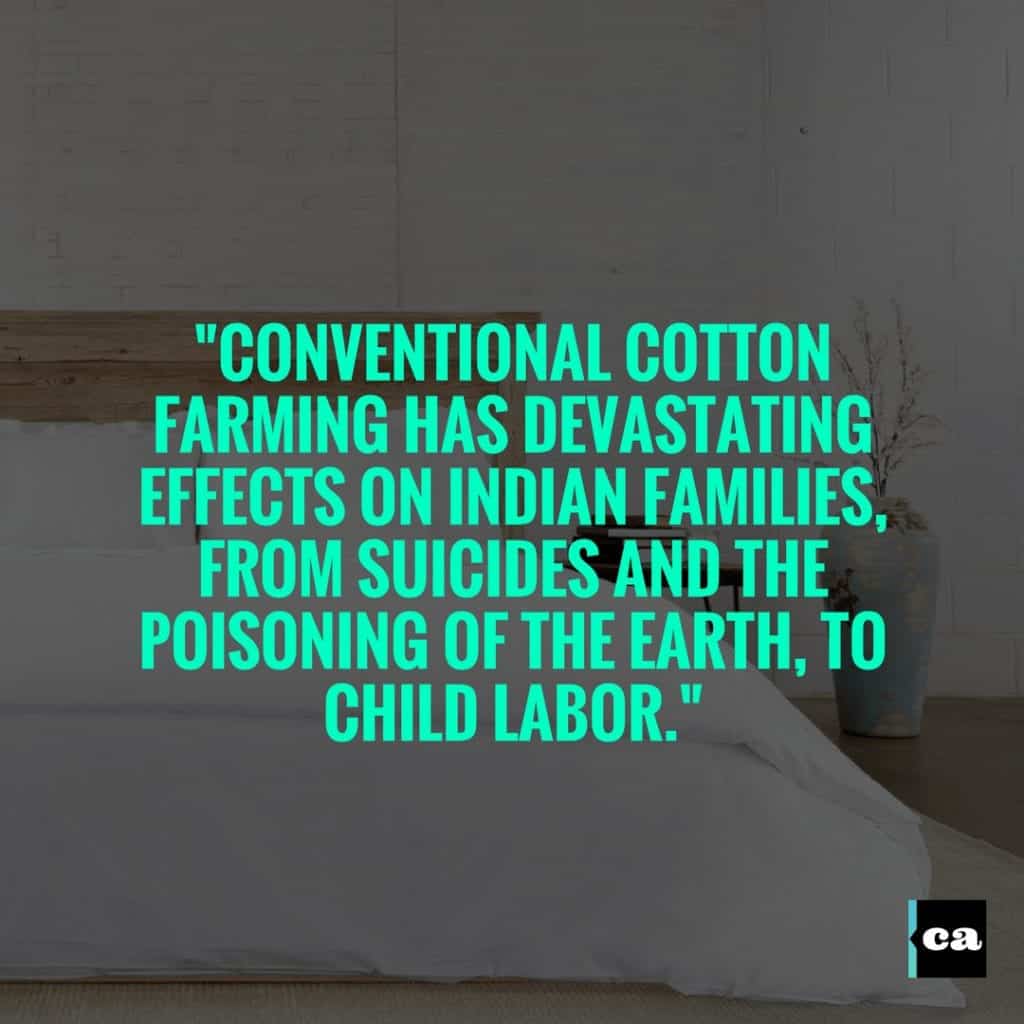
I visited farms and listened to the stories of the farmers and the devastating human and environmental threat it posed to those involved – it was nothing short of heartbreaking.
Women are the centerpieces of farming in our country. They are the preservers of the seed, the nurturer of the land and the provider for the family. She challenged me to do something and make it an even playing field.
Being a firm believer in trade not aid, which uplifts people, we launched a fair trade certified organic cotton bedding company named Sustained Organic Living (Sol). The mission is fair trade, at a fair price.
Currently, Fair Trade is associated with a living wage for farmers. Consumers have proven in the marketplace that they are willing to pay a small premium for this. Sol Organics is taking this a step further by also providing a fair price for the customer. This is what makes the equation holistic.
One without the other is marketing gimmickry. Economic and social justices are prevalent on both sides of the supply chain, for the farmers and the customers. It is our company’s responsibility to make them both a priority because without them, we do not exist.
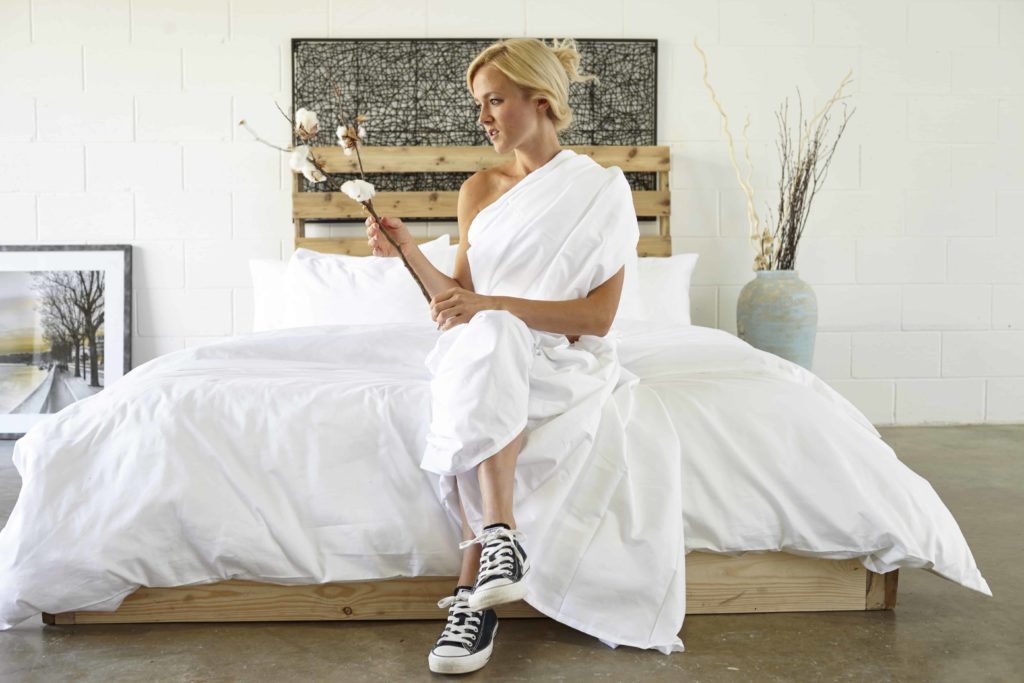
Sol Organics provides bed sheets that are the same quality as high-end luxury bed sheets without the unnecessary markups. The integrity of our supply chain, from the cotton being fair trade certified to the factory, is on par with reputable greats like Patagonia and Prana.
Our mission is to make luxury organic cotton products as affordable and accessible as possible. Affordability is the tipping point as it promotes access, which in turn creates demand and conversion to organic cotton.
It creates this symbiotic ecosystem with a tremendous upside where everyone wins, the farmer, the consumer and the planet.
Q: How long did it take to find a reliable and socially responsible manufacture that met your high standards of labor and quality?
To get the luxury value and feel right, sheets were purchased from high-end retailers such as Frette, Pottery Barn, Macy’s and others. The sheets were sent to a top international textile lab and deconstructed for thread counts, staple, weave and construction.
We then searched an Organic Textile database and contacted hundreds of factories and sent them through our rigorous internal checklist (Flo-certified, GOTS certified, Oeko Tex Certified, Fair Trade Certified Cotton, among many others).
After an exhaustive and educational search for the right supplier, we narrowed down to three favorites, got on a plane, and gave them a surprise visit. One factory passed with flying colors.
It had everything we were looking for, a transparent supply chain from farm to fabric using only non-GMO seed certified raw organic cotton manufactured in a FLO-certified factory. Sol Organics was officially born!
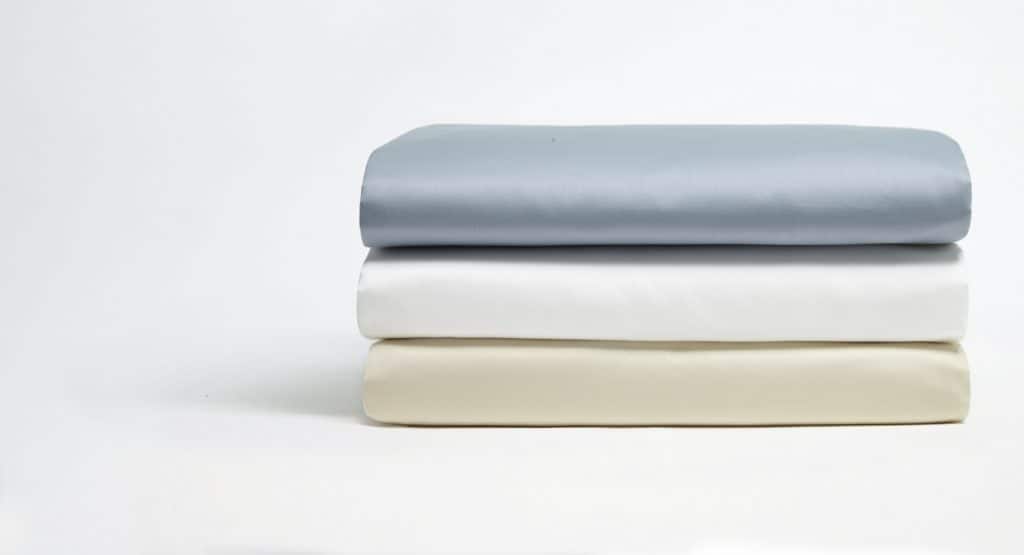
Q: For those who are not familiar, what is organic cotton and textiles and why is it important?
According to the WWF, cotton represents nearly half of the fiber used to make clothes and other textiles worldwide. In the U.S. alone, total economic activity stimulated by cotton is estimated to be over $75 billion.
The global demand for cotton has doubled since the 1980’s, now in excess of 25 million tons annually.
With this demand for cotton, and its production requiring massive yields, it has become one of the most heavily saturated crops with treatments of pesticides and herbicides.
Of all insecticides used globally every year, the estimated amount used on cotton is 16-25% more than any other single crop.
These types of pesticides are harming our fragile ecosystems by infiltrating diverse bodies of water and affecting plants and animals of various biomes.
It’s also harming our workers with estimations of 1 million agricultural workers a year needing hospitalization due to acute pesticide poisoning (World Health Organization).
Many shop for organic because they know how harmful it is to ingest herbicides and pesticides. The same is true of what you wear every day and how it impacts the environment and your body.
Organic construction affirms an adherence to a natural process, one that can help our planet and change the lives of workers by abiding by the utmost standards of safety and production ethics.
We wrote a blog on this very topic, you can find here: you’ll be amazed how cotton ends up in our everyday foods as well!

Q: In your mission to build the Sol Organics brand what have you learned about child labor laws?
In the 14th edition of the USDOL’s “Findings on the Worst Forms of Child Labor,” 18 countries were identified for using child laborers in the cotton industry, including Brazil, China, Egypt, India, Pakistan and Turkey.
In Asia and the Pacific region of the world, 77.8 million children between the ages of 5 and 17, or 9.3 percent of all children in the area, are victims of child labor; most predominantly working in agriculture.
In Central and South Asia, many children work in cotton cultivation, while kids in the latter region work as forced and bonded laborers in textiles and manufacturing.
These types of statistics are one of the main reasons we use Fair Trade Certified Cotton and manufacture in a FLO certified factory.
We believe the integrity starts with the people. All major companies have social compliance policies in place, but the majority of the social compliance stops at the factory level and rarely do they verify the source of material.
We see that as a major disconnect, and we want to change that model.
Supply chains can be verified to the farm level at a minimum additional cost of 5% to the cost of goods.
If we as a small company with limited resources can achieve and monitor this, so can major corporations. It is achievable if companies make a choice to do so. A journey of a thousand miles begins with one step.
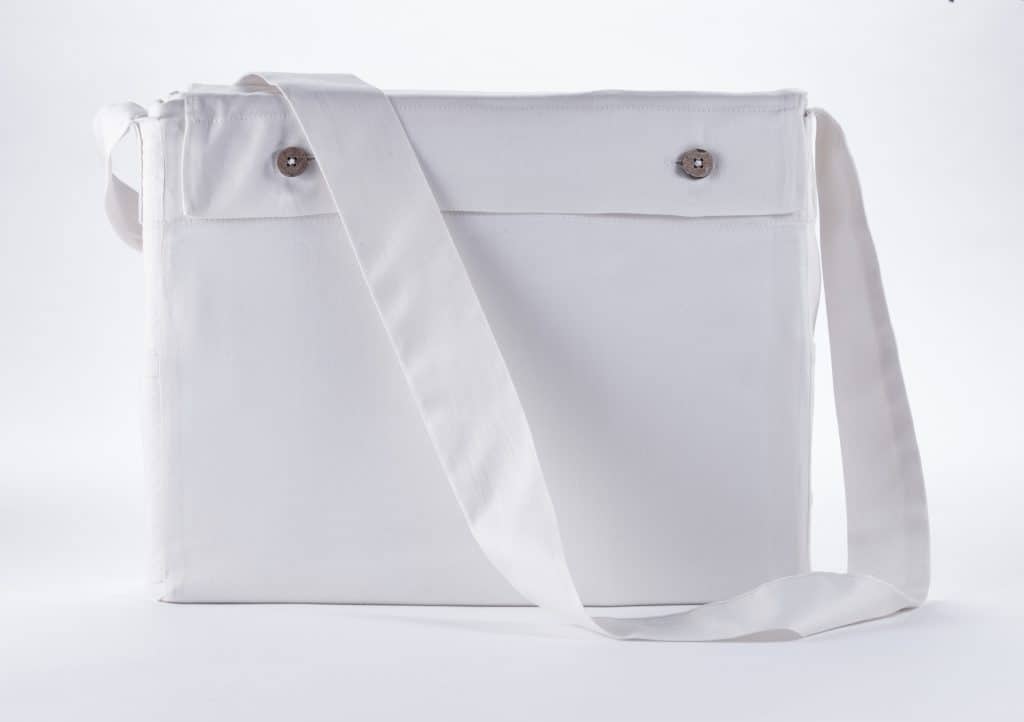
Q: Can you explain the Sol Organics Fair Price Model and why it’s so important for consumers to know and understand?
Consumers need to know when they are voting with their wallets to support fair trade farmers and fair trade factories and how that impacts workers and the planet. The premium is paid on a first cost basis, not on the retail price.
This premium then goes to providing workers, farmers and their family’s basic needs, such as healthcare, education and living wages. It also insures no child labor is ever used and many more social and environmental benefits are provided.
We refuse to mark up that premium to respect the integrity of the product and those that work to bring it to our customers. We call this uncompromising luxury!








